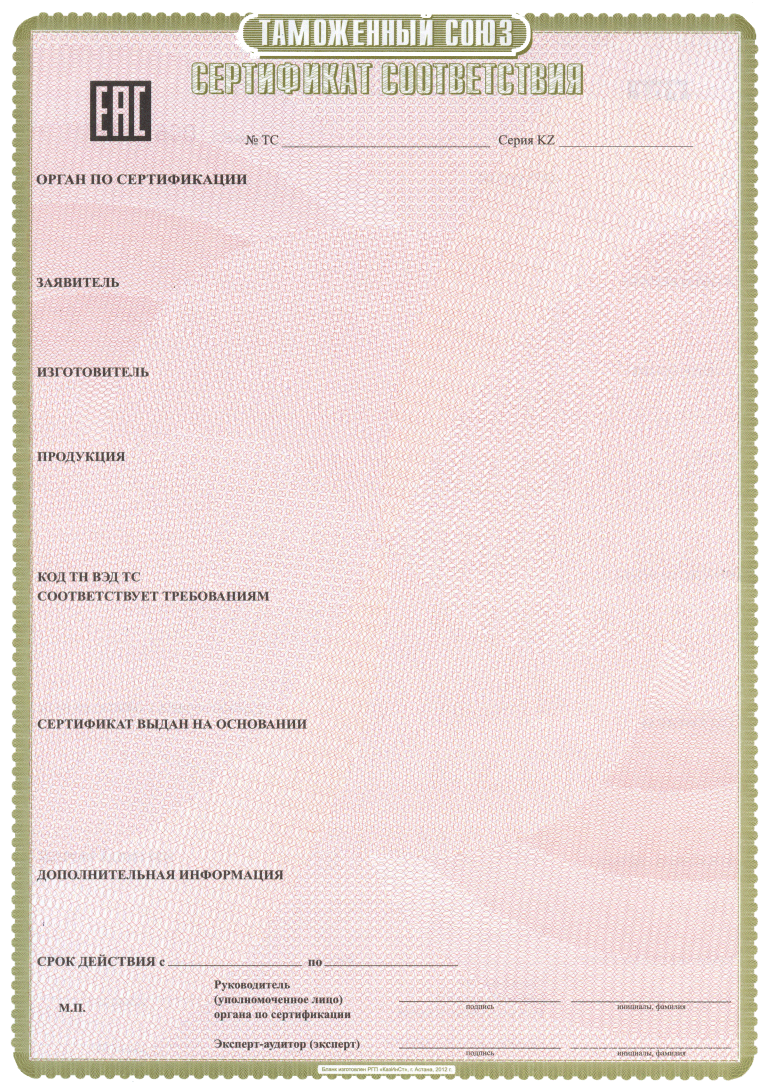The certificate of conformity is issued either for a batch of products or for mass-produced products. An applicant for certification of products may be a legal entity (or an individual entrepreneur) registered in the territory of the Customs Union, which is a manufacturer or seller (supplier), or performs the functions of a foreign manufacturer on the basis of an agreement with the manufacturer in terms of ensuring the compliance of the supplied products and responsibility for its compliance requirements of the technical regulations of the Customs Union. The validity period of the certificate depends on the chosen product certification scheme and is established in accordance with the Technical Regulations for products. So, when certifying a batch of electrical products, the validity period of the certificate is not established. A certificate of conformity is not required for products imported by individuals in single copies for their own needs (personal use). As well as in relation to imported products for research purposes and testing, as souvenirs, promotional materials, used products (except for cars), sports equipment for equipping sports teams, spare parts for repair and maintenance of previously imported finished products (except cars), in cases of temporary import, etc. Products do not need to be certified if they are not covered by the TR TS currently in force, and also if the products do not fall under the Decree of the Government of the Republic of Kazakhstan dated April 20, 2005 No. 367 "On mandatory confirmation of product conformity in the Republic of Kazakhstan" and Decision of the Commission of the Customs Union dated April 7, 2011 No. 620 "A single list of products subject to mandatory assessment (confirmation) of conformity within the framework of the customs union with the issuance of single documents." The CU Certificate of Conformity is valid only on the territory of the CU member countries; for exporting products abroad, a certificate of origin is required, as well as documents established by the current legislation of the country of destination.
This email address is being protected from spambots. You need JavaScript enabled to view it.
Industrial safety
Permission for application (PFA)
Certification of production facilities according to working conditions
Examination and diagnostics of industrial safety
Industrial Safety Declaration
Technical inspection of buildings and structures
Technical inspection of lifting mechanisms, metal structures, pressure vessels, steam and hot water boilers
Diagnostics, research of equipment and mechanisms
Development of technical documentation
Development of a passport for technical devices and equipment
Development of a safety data sheet for chemical products
Development of an anti-terrorist security passport
Development of accident response plans (ARP)
Development of regulatory documents (RD), technical specifications (TS), organization standard (ST LLP)
Fire audit
Registration of medical devices, equipment and medicines
Registration / re-registration of medicines and medical devices
Amendments to the registration dossier of medicines and medical devices
Working with the registration dossier of medical devices
Translation of medical documents
Development of projects on registration of medicines and medical devices
Pharmacovigilance
Do you have any questions? You can leave your number, we will call you back and consult at a convenient time for you.

© KZstandard Certification Center LLP, 2025 All rights reserved.
Contacts
Main office: Astana, Turkestan 16 st., “YES ASTANA”, 4th floor, office 11

